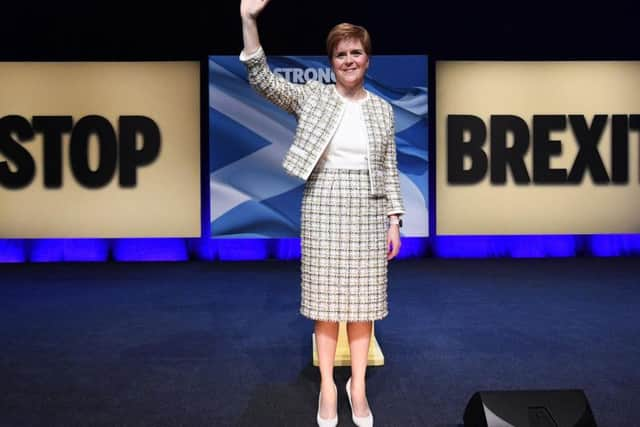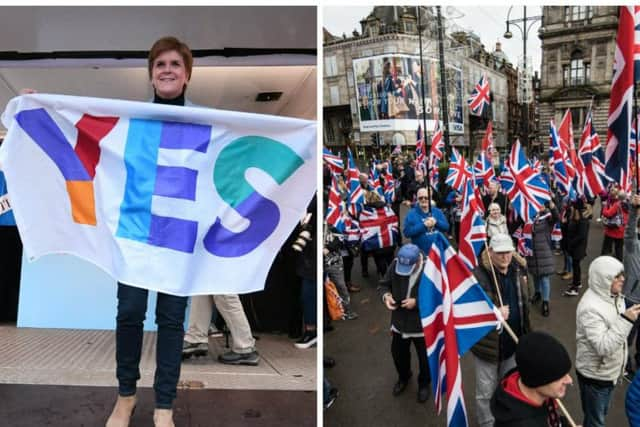Poll: Support for independence and Union tied at 50-50 among voters
A survey of voting intentions across Scotland by pollsters Ipsos Mori puts the SNP on 44 per cent, the Conservatives 26 per cent, Labour 16 per cent, and the Lib Dems on 11 per cent.
If replicated on polling day, the Nationalists would be up to 48 MPs, while the Tories would lose seven seats to be left with six. Labour would be reduced to just one seat, while the Lib Dems would be unchanged on four.
Advertisement
Hide AdAdvertisement
Hide AdThe survey also found support for Scottish independence has increased slightly on recent polling, with support for the Union now tied 50-50 among voters likely to visit the polls next month. The last poll on the subject had No on 51 per cent, compared to Yes on 49 per cent, when don't knows were excluded.


But only a third of those surveyed are "strongly support" a vote in 2020 and more are against it than want it.
Three quarters of those with a voting intention say they’ve made up their mind on who they’ll vote for, while just under a quarter say they may change their mind.
Brexit is seen as the top issue helping voters decide which party they’ll vote for, with 56 per cent of respondents mentioning it.


Ian Blackford, SNP leader at Westminster before parliament was dissolved, said: “It’s increasingly clear that this election is a two horse race in Scotland.
“Only the SNP can beat the Tories and deprive Boris Johnson of the majority he craves.
“And with support for independence now at 50%, it is completely unsustainable for any Westminster politician to try and block Scotland’s right to choose.
“The SNP will be working every day between now and the election to keep Boris Johnson out of Downing Street.”
Advertisement
Hide AdAdvertisement
Hide AdLuke Graham, Scottish Conservative candidate for Ochil and South Perthshire said: “Nicola Sturgeon wants to hold a second independence referendum next year. Not in the distant future – within the next 12 months. Yet this poll reveals just how unpopular that policy it is.”
“When asked to choose, more people say they strongly oppose another referendum next year than any other option. It shows that Nicola Sturgeon is completely out of touch with mainstream Scottish opinion.”
“Unlike Jeremy Corbyn, Scottish Conservatives will say no to another divisive referendum.”
Emily Gray, Managing Director of Ipsos MORI Scotland, said: “The SNP have most reason to be pleased with the findings from our poll. The party looks set to make gains at the general election and Nicola Sturgeon’s personal ratings remain the highest of any of the party leaders. Looking beyond the election, the timing of a second independence referendum remains a difficult balancing act for Nicola Sturgeon, since more of the Scottish public oppose a second referendum being held in the next year than support it.
“While the Conservatives’ share of the vote looks likely to be a little lower than it was at the 2017 general election, the poll has major warning signs for Scottish Labour. Richard Leonard has the lowest satisfaction ratings of any of the Scottish leaders of the four largest parties, and most of the seats the party gained in 2017 look at risk of turning from red to yellow on December 12.”
